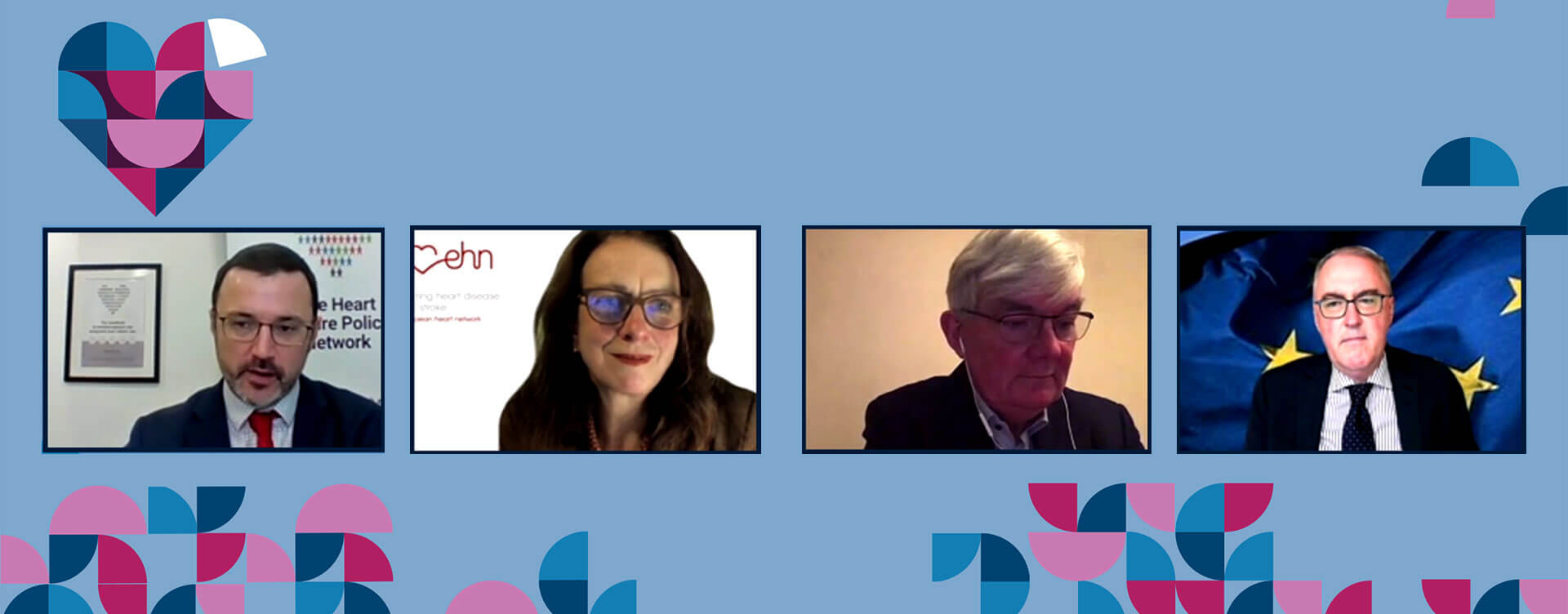
What links a dog dressed as a fairy, an MP with a new heart, and Michelle Obama? The answer is the inaugural Heart Failure Policy Summit – hosted online by the Heart Failure Policy Network (HFPN) from 16 to 18 November 2021 – which brought together a unique and diverse set of speakers from the policy and advocacy community to produce some surprising and thought-provoking insights.
The summit aimed to build intellectual and emotional connections between front-line practice, lived experience and decision-making. Over three evenings, 250 attendees watched 32 speakers, ranging from trailblazing campaigners to clinical innovators. Taking advantage of the virtual setting, we were able to ‘Zoom in’ experts from three continents, livestream from a hospital consultation room, and include someone experiencing the reality of chronic heart failure only days after a hospital admission. With a focus on influencing policy, we were privileged to hear from real-world decision-makers, including politicians and civil servants with experience at the centre of national and European government.
So what did this unique collaboration uncover?
A key message from politicians was that, alongside the technical evidence and policy proposals, people with experience of a condition can connect emotionally with decision-makers and translate national statistics into local stories. Expert patient adviser Lynn Hedgecoe shared her moving story of the fear of initial diagnosis evolving to her motivation and hope for the future as an advocate and fundraiser (walking with her dog in fancy dress).
‘There is nothing better than the patient voice – the experiences of you and your families. You have this emotional power. You have a very powerful role to create that narrative.’
Ed Harding, Network Director, HFPN
As Penilla Gunther, former Swedish MP (and heart transplant recipient), reminded us: politicians are people too. You need to get to know your politicians – you can’t just turn up and ask for action. ‘What is their life experience? Do they have a family connection or professional interest? Who has the heart and mindset and a fire burning for what you’re going to say?’
Picking up the theme, Billy Kelleher MEP advised us that politicians can be ‘like moths to the flame, attracted to the latest and brightest new light in the sky’. They are interested in hospital buildings, new drugs or ambulances, aiming for short-term impact within the political cycle. Chronic conditions like heart failure can seem to be a long-term investment with a slow return, without the perceived urgency of other conditions.
Heart failure advocates therefore need to persuade decision-makers that the condition is ‘as urgent as cancer’. Patient advocate Nick Hartshorne-Evans deliberately pushes the cancer comparison, demanding the same level of urgent access to diagnosis and care for suspected heart failure as for a suspected tumour. That moral urgency can be combined with a Dragons’ Den-style policy pitch, advised experienced health advocate Paul Mitchell.
Speaking from the very centre of European policymaking, Commission public health director John Ryan reminded us of the many opportunities to insert the heart failure argument into the burning issues of the day. The EU4Health budget, COVID-19 resilience and recovery agenda, digital and research strategies, and public health policy are the current ‘lights in the sky’ for decision-makers that advocates can also gather around to make our case.
What about Michelle Obama? A final insight from retired civil servant Dr Ambrose McLoughlin was the need to raise awareness and build a global ‘coalition of the willing’ for heart failure. Drawing on his experience at the top table of international policymaking that achieved a breakthrough on tobacco regulation, he shared the story of how world leaders can be influenced behind the scenes by individuals – including the First Lady, who had lived experience of helping her husband to quit smoking. These coalitions take time to build, but repay dividends at key historic moments.
We hope these fascinating glimpses ‘inside the mind’ of decision-makers provide heart failure advocates who attended the summit, and anyone catching up on demand, with inspiration for your own campaigns. For the HFPN Secretariat, the learnings from the summit are already shaping our plans. We will support advocates to connect with local decision-makers through more tailored resources and collaborations like our recent Italian webinar and Trailblazers Hub case studies. We will tap into topical debates with resources like our Heart failure and COVID-19 report, and continue to produce the evidence that will catch decision-makers’ attention. We plan to recruit an alliance of senior ambassadors for heart failure who can raise awareness and effect change at the highest levels.
The 2021 summit was a major step forward for the HFPN and we thank all the speakers, participants and partners who made this unique event possible. Our future efforts will prove its legacy.

Blog post by Joe Farrington-Douglas, Network Director, Heart Failure Policy Network